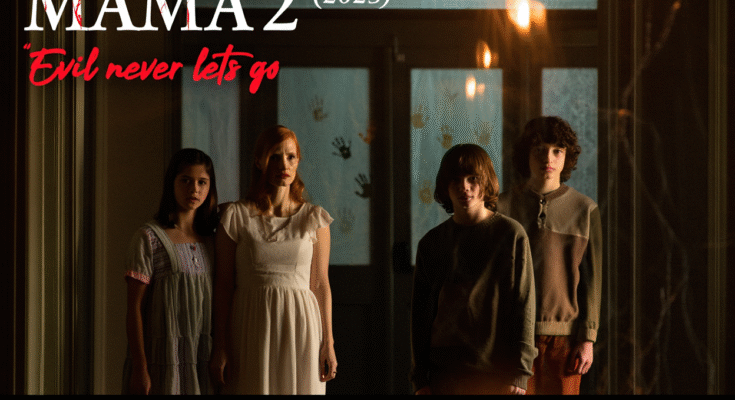
Few horror films linger quite like Mama (2013) — a spectral fairy tale about grief, motherhood, and the darkness that follows love too far. Now, twelve years later, Mama 2 (2025) arrives like a long-forgotten lullaby echoing through the trees, carrying with it that same aching sadness and cold terror. Directed by Andy Muschietti and produced by Guillermo del Toro, the sequel is not a mere return to form — it’s an evolution. It dares to ask: what happens when the thing you loved never really let you go?
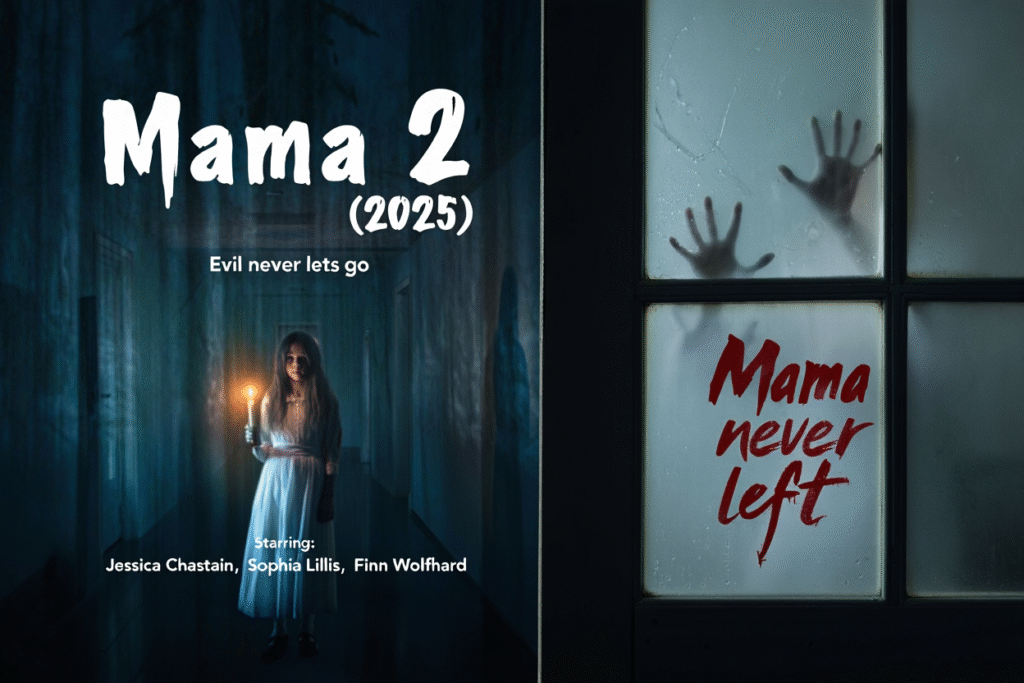
The film opens on silence — the kind that feels alive. A slow pan through an empty foster home in the woods, wallpaper peeling, toys left untouched, and a music box still faintly spinning. It’s been years since the events of the first haunting, but the air still hums with memory. Annabel (Jessica Chastain), now older, withdrawn, and carrying the scars of survival, works as a counselor for children displaced by trauma. She has buried the past — or so she believes — until the past decides to unearth itself.
Clara (Sophia Lillis) enters her life like a ghost of her own youth: quiet, watchful, and carrying the kind of sadness that never belongs in someone so young. Her brother, Noah (Finn Wolfhard), is her opposite — defiant, skeptical, unwilling to believe in monsters. Yet when the lights flicker, and the windows begin to fog with handprints that weren’t there before, disbelief quickly becomes denial, and denial becomes fear. Lillis and Wolfhard — both veterans of It — bring emotional nuance to their roles, embodying the fragile resilience of children standing at the edge of the unknown.
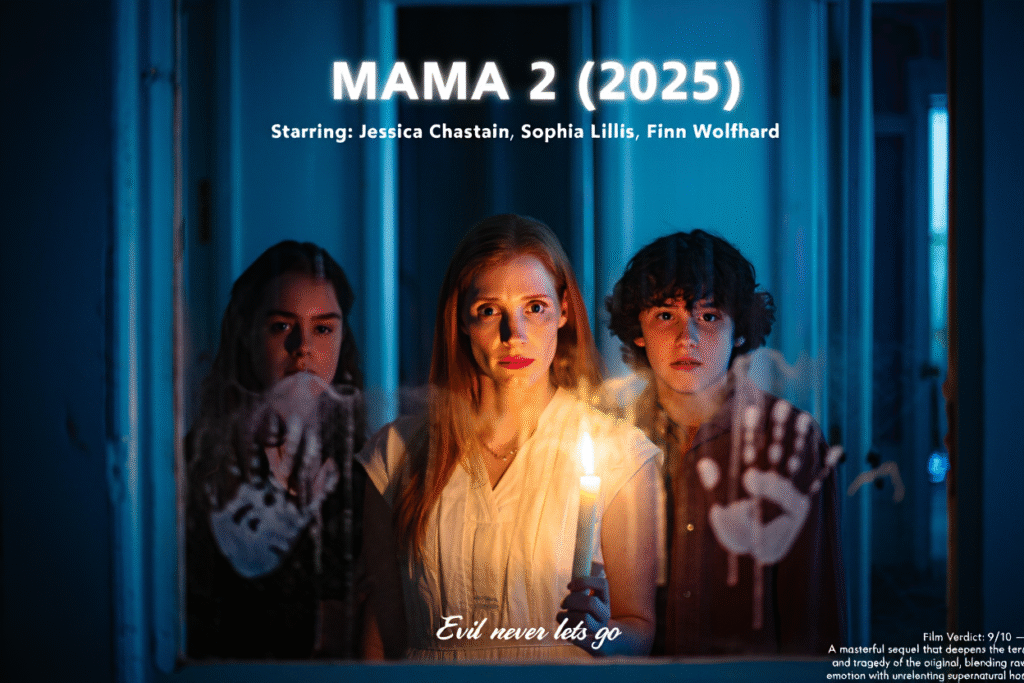
What Mama 2 does so brilliantly is weave emotional truth into supernatural horror. The whispers that haunt Clara are more than mere echoes of the dead; they are manifestations of loneliness, guilt, and the hunger for connection. Mama herself — the twisted, floating wraith of a mother who could never let go — returns not as a villain, but as something heartbreakingly misunderstood. Her presence is more terrifying than ever: limbs unnaturally long, voice fractured and tender, like a lullaby turned inside out. But there’s a sadness in her rage — the ghost of a mother’s love gone wrong.
Jessica Chastain’s return as Annabel is the film’s emotional spine. No longer the reluctant caretaker from the original, she is now the haunted protector — a woman who has seen the cost of compassion and bears its wounds like penance. Chastain plays her with quiet devastation, her every movement suggesting someone forever waiting for the next door to creak open on its own. When she finally whispers, “She’s back,” it’s not fear that fills her eyes — it’s recognition.
Cinematographer Javier Aguirresarobe bathes the film in pale moonlight and sickly greens, turning the forest into a cathedral of shadows. The imagery is breathtaking — windows breathing with fog, corridors that stretch endlessly, and glimpses of Mama reflected in puddles and mirrors before vanishing into the dark. The visual language echoes del Toro’s influence: every frame a painting of beauty and decay intertwined.
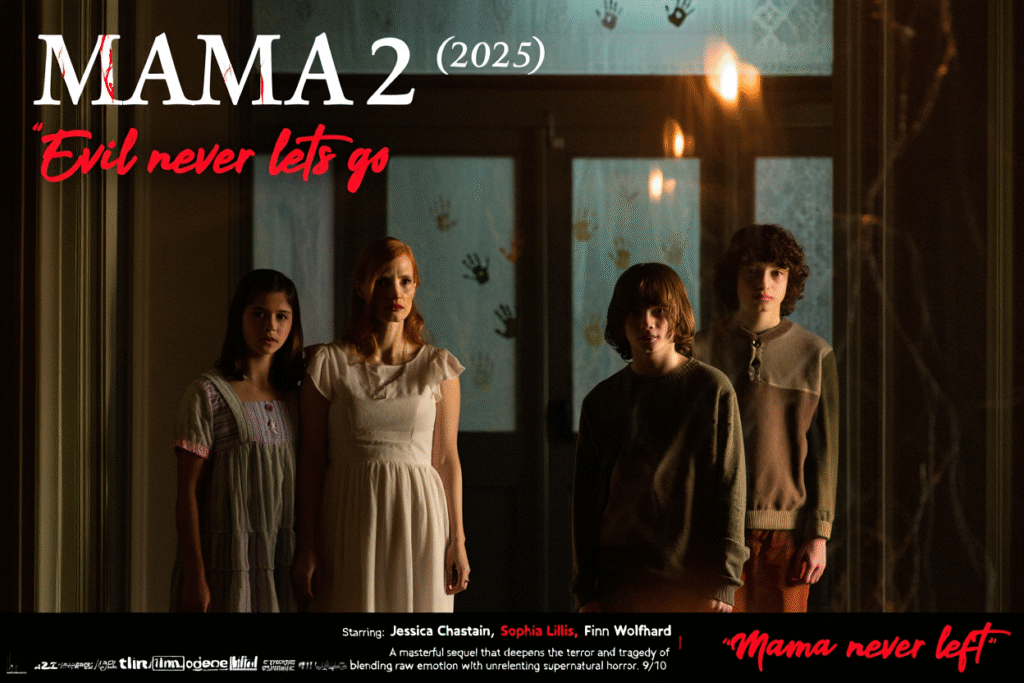
The score by Benjamin Wallfisch deepens the unease. He reworks the haunting lullaby motif from the first film, layering in dissonant whispers and heartbeat percussion. The result is a soundscape that feels like grief incarnate — soft, persistent, and inescapable. Even in moments of silence, you can feel Mama’s presence, hovering just outside the frame.
Where Mama 2 truly shines, however, is in its exploration of inherited trauma. The film suggests that hauntings are not bound to one house or family, but passed like whispers through generations. Clara’s bond with Mama blurs the line between victim and vessel — a tragic echo of what Annabel faced years before. The more she listens, the stronger Mama becomes, feeding on grief the way a flame feeds on air.
As the film builds to its climax, Muschietti orchestrates a symphony of fear and sorrow. The final act unfolds in the ruins of the old Blackwood cabin — the birthplace of the curse. Snow falls inside the house as the boundaries between worlds dissolve. Annabel and Clara face Mama one last time, not with weapons, but with understanding. What follows is both terrifying and profoundly moving — a confrontation not between good and evil, but between love and obsession.
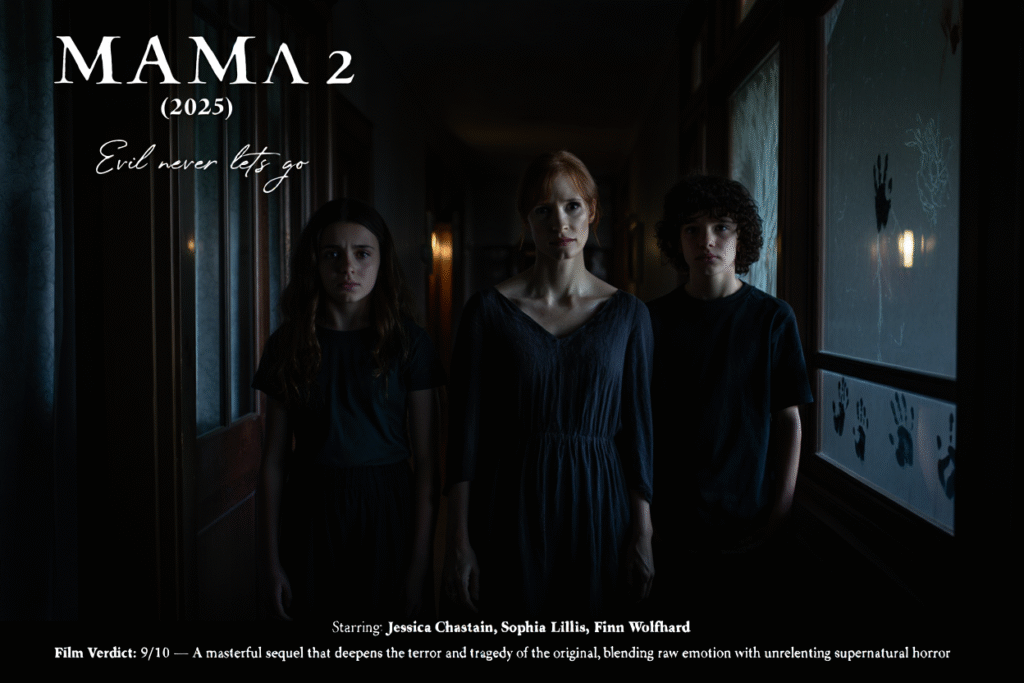
The ending is pure poetry: a single candle flickering in a child’s room, the lullaby playing in reverse, and a faint whisper from the dark — “Mama never left.” The screen fades to black before the final note finishes, leaving the audience suspended between heartbreak and horror.
Mama 2 (2025) is a rare kind of sequel — one that doesn’t just revisit its origins but deepens them. It expands the mythology, elevates the emotion, and sharpens the terror until it cuts to the bone. What was once a ghost story becomes something richer: a meditation on motherhood, memory, and the impossible act of letting go.